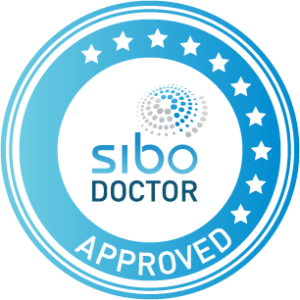Are you suffering from bloating and gut pain? Need answers?
🌿 Reclaim Your Gut Health — and Your Life
Discover natural treatments and lifestyle strategies to address gut imbalances, optimise digestion, and restore lasting wellness.
🦠 Common Gut Health Challenges
Are you frustrated by being told that “everything looks normal” when your digestion feels off? Persistent gut issues can manifest as:
- 🥦 Bloating and abdominal discomfort after meals
- 🍞 Pale, irregular, or inconsistent stools
- ☕ Fatigue or low energy following eating
- 🌾 Digestive issues that don’t improve with restrictive diets or quick fixes
Many individuals experience gut symptoms for years without lasting relief. One often-overlooked factor is the interplay between bile flow, gut microbiome balance, and digestive function. When bile production or release is impaired, it can disrupt fat digestion, nutrient absorption, and the balance of beneficial gut bacteria — leading to ongoing discomfort that conventional medicine may miss.
💚 Why This Matters
Feeling dismissed or unheard can be disheartening. Persistent gut symptoms can affect your energy levels, mood, and overall quality of life. Temporary relief is not enough — addressing the root causes is essential for lasting digestive health and wellbeing.
🧬 Holistic, Science-Based Solutions
At Naturopath Solutions, we offer a holistic approach that targets the underlying drivers of gut imbalance rather than simply masking symptoms. Led by Celia Grossman — a microbiologist and biochemist, and one of the few practitioners approved by The SIBO Doctor and SIBO Test — our personalised programs combine advanced gut testing with targeted natural therapies to:
- 🌱 Rebalance your gut microbiome for improved digestion and immunity
- 💧 Optimise bile flow to enhance nutrient absorption and fat metabolism
- 🍃 Support your body’s natural healing and restore long-term balance
With the right guidance, you can regain energy, confidence, and comfort in your body. Together, we uncover the root causes of gut dysfunction and create a personalised plan to restore health from the inside out.
Source: Adapted from SIBO Test
🌿 Our Services
Expert Care for SIBO and Gut Health
Celia is a qualified SIBO practitioner who is trained to assess, test, and treat Small Intestinal Bacterial Overgrowth (SIBO). She is also one of the few practitioners approved by sibotest.com.
With an Honours Degree in Microbiology and years of experience as a bacteriologist in a leading Melbourne hospital, Celia brings strong scientific knowledge to her natural health practice. This foundation allows her to accurately identify and treat gut conditions caused by bacterial or yeast overgrowth.
💚 A Practitioner Who Understands
Celia and her family have personally experienced ongoing digestive and gut health issues. This gives her a deep sense of empathy and understanding toward her clients.
She listens carefully, takes your symptoms seriously, and provides the kind of care and attention many people feel they’ve missed elsewhere.
🩺 Personalised SIBO Treatment Plans
Every case of SIBO is unique. Celia carefully assesses the root cause of your symptoms and designs a treatment plan tailored to your individual needs.
- 🌱 Relieve uncomfortable symptoms
- 🌿 Address and correct the underlying cause
- 🍃 Prevent relapse and support long-term gut balance
💬 Consultation Rates
Initial Consultation (1.5 hours): $275
Follow-Up Consultation (45 minutes): $150
Add-on testing may be required (see Testing for Suspected SIBO and Gut Issues).

